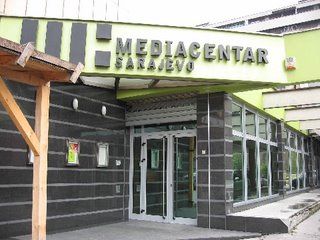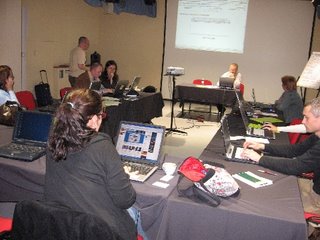Mediacentar, Sarajevo
 The Mediacentar, Sarajevo
The Mediacentar, SarajevoPicture courtesy
Imagine a set of editorial guidelines that are continually updated, with journalists in every corner of the world able to edit them, add to them, challenge and stretch them, enhance and polish them.
Such an online resource could be a vibrant, best-practice guide, reflecting the views of journalists from every continent.
After five days working together, a team of ten journalists from eight different Balkan countries has produced the first draft for these guidelines.
Slovenia , Croatia , Hungary , Bulgaria , Romania , Moldova , Macedonia, Bosnia, and Serbia and Montenegro
Sarajevo
That task was big enough, but we decided to go one massive step further.
Such an online resource could be a vibrant, best-practice guide, reflecting the views of journalists from every continent.
After five days working together, a team of ten journalists from eight different Balkan countries has produced the first draft for these guidelines.
That task was big enough, but we decided to go one massive step further.
 Working on the editorial guidelines wikis
Working on the editorial guidelines wikis
Picture courtesy
Nedim Dedic, the technical genius at the MediaCentar, set up the wonderful open-source, distance learning tool Moodle and built in all the functionality we needed to produce the first draft of the guidelines in wiki form. The headings are
- Integrity
- Independence and Impartiality
- Accuracy
- Fairness
- Privacy
- Taste and Decency
- Audience Input
Online journalism is moving too fast to have guidelines printed on paper only. A Wiki, with the potential of having every journalist in the world acting as editor and contributor seems a crazy, brave, but somehow logical way forward.
Let’s hope it works.
Client: Mediacentar Sarajevo
Media Development Organisation: SEENPM
